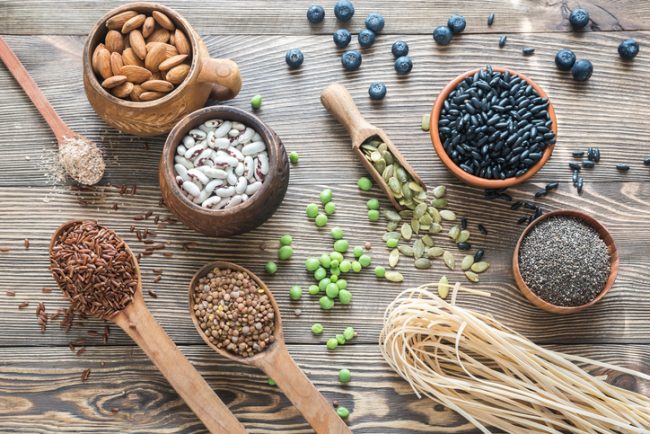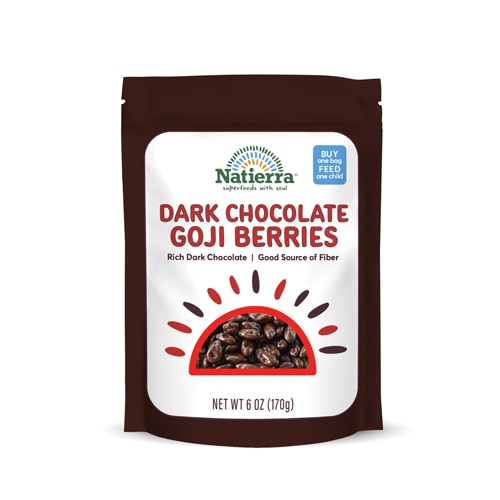Heart Health Month is the perfect time to focus on giving your heart the love it deserves by nourishing it with the perfect blend of plant-based nutrients.
Plant-based diets have been shown to improve heart health and reverse heart disease. But what is it about this way of eating that benefits the cardiovascular system? Fiber and phytonutrients are likely the answer. Beans, nuts, seeds, grains, vegetables and fruits, for example, are high in both fiber and phytonutrients.

Fiber is a nutrient that helps support gut health, maintain regularity and promotes healthy blood lipid profiles. Unfortunately though, most Americans don’t get enough fiber.
Phytonutrients are compounds in plant foods that give them their unique characteristics like a blueberry’s deep hue, a hot pepper’s kick and garlic’s unique smell.
Aside from imparting traits to plants, phytonutrients can also increase HDL cholesterol (the good cholesterol), lower blood pressure, dilate vessels and reduce inflammation.
Even though all plants are high in fiber and phytonutrients, some stand out as heart-healthy heroes:
1. Berries
Berries are one of the healthiest foods out there. These fruits are among the most phytonutrient-rich options you can choose because they’re full of anthocyanin. This compound gives blueberries, blackberries, cranberries, raspberries, and strawberries their red and blue colors. It’s also believed to play a role in promoting the health of the blood vessels.
Berries also have soluble fiber. Soluble fiber is important because it binds to cholesterol, helping to lower cholesterol levels.
Enjoy berries daily by having them as a snack, in a nourishing smoothie, as a dessert, or covered in dark chocolate!
2. Beans
Beans are a must for plant-based eaters because they’re high in protein. But beans can also play an important part in your heart health. They’re also a powerhouse of phytonutrients. They reduce inflammation, protect the cardiovascular system and provide soluble fiber, which can also improve lipid profiles.
Another added of beans is that they contain heart-healthy minerals and vitamins like the B-vitamin folate. Folate protects blood vessels by limiting harmful buildup of homocysteine, an amino acid which when elevated is a risk factor for heart disease.
Add more beans to your diet by using them as a garnish in salad, in a delicious vegetable soup, or in hummus with raw, sliced vegetables.
3. Flaxseeds
Although tiny, these are some pretty powerful seeds. Flaxseeds are a rich source of soluble fiber, which works to inhibit cholesterol absorption.
These little seeds provide lignans, a potent antioxidant,that can promote a healthy cardiovascular system.
However, that’s not all flaxseeds have up their hulls. They’re also a source of omega-3 fatty acids which have been shown to promote heart health. It’s important to be mindful of omega-3 fatty acids when abstaining from seafood.
When consuming flaxseeds, make sure they’re ground. A whole flaxseed won’t provide the same amount of nutrition as a freshly ground seed.
4. Green tea
There couldn’t only be foods on the list! We can also protect our hearts while we quench our thirst. If you're looking for a beverage that does both, steep a cup of green tea.
Although this option doesn’t tout the benefits of fiber, green tea contains powerful phytonutrients. In fact, catechins, the specific phytonutrients found in green tea, have been shown to reduce vascular inflammation and improve blood lipid profiles.
Have a cup of green tea to perk yourself up in the morning. Just keep in mind that tea can inhibit iron absorption. So be sure not to drink tea at meal time.
Which one of these tips will you follow to show your heart some love? Share your top pick on Instagram and tag us @vitacost!



